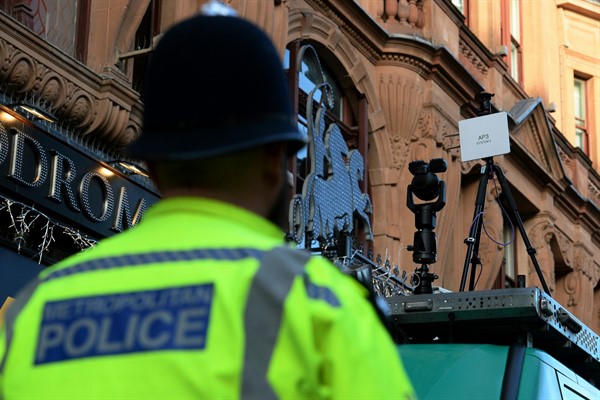From spyware wielded by autocrats to expanded surveillance by police states under the cover of the coronavirus pandemic, new technologies are helping authoritarian governments entrench their power and target their critics. They are also amplifying the spread of disinformation. Yet many democracies are also using these same technologies in troubling ways. This WPR report provides a comprehensive look at how these state-of-the-art tools are being harnessed by different governments around the world. Download your FREE copy of Surveillance, Control and Disinformation Technology to learn more today.
For years, activists, academics and watchdogs have characterized the spyware industry as out of control, with technology outpacing the laws designed to constrain the industry’s activities. In January 2020, the nefarious potential of such technology was vividly demonstrated when the heir to the Saudi kingdom apparently used Israeli-made spyware to breach the personal phone of the world’s richest man, who owns a leading American newspaper and runs one of the world’s most valuable publicly traded companies.
Meanwhile, the growing prevalence of facial recognition technology in authoritarian countries like Russia and the United Arab Emirates, which use it to monitor activists and suppress dissent, has raised increasing alarm among human rights advocates. Perhaps the most egregious example is in China, where the government has used facial recognition technology to racially profile Uighurs, a predominantly Muslim ethnic minority that is concentrated in Xinjiang province, and forcibly lock them up in internment camps. But authoritarian countries are not alone: This technology is now being harnessed for law enforcement and surveillance purposes in many democracies.
Download Surveillance, Control and Disinformation Technology today to take a deeper look at these trends and get a glimpse at what the future may hold.
In this report, you will learn about:
- How surveillance technology is helping authoritarian governments stifle dissent
- The Bezos hack and the dangers of spyware in the hands of autocrats
- The troubling rise of facial recognition technology in democracies
- How police states are expanding under the cover of COVID-19
- Whether the U.S. is prepared to deal with disinformation in the 2020 presidential campaign
- Why tech giants aren’t doing enough to combat misinformation online
- Why Russia’s attempt to create its own tightly controlled internet could backfire
Police states are expanding under the cover of COVID-19.
In April 2020, the Kyrgyz news outlet Kloop posted a video on YouTube showing a new app called STOP COVID-19. Developed by the government of Kyrgyzstan, it allows the authorities to follow the whereabouts of those exposed to the coronavirus. The video shows the movements of two individuals being tracked by combining their digital profiles and phone locations with their government-issued IDs.
In theory, STOP COVID-19 is a valuable tool in the government’s efforts to track and trace confirmed or suspected coronavirus patients. But the app goes much further than most Kyrgyz citizens would likely be comfortable with. In addition to tracking, the app has the ability to listen to phone conversations, monitor data usage and even take control of a person’s mobile device. And while it is not mandatory, anecdotal evidence indicates that many people are being pressured to install it.
Download Surveillance, Control and Disinformation Technology for FREE today, and discover how governments are using all available levers to limit the long-term economic damage from the shutdown.
Is the United States prepared to deal with disinformation in the 2020 election?
Threats of foreign interference in the next American election, especially disinformation online, are real, and social media companies and the U.S. government have the most power and influence to guard against them. Even after what unfolded in 2016 and with everything that is known about the extent of Russia’s election interference, the risk of disinformation unwittingly stoking further political division remains grave. Facebook taking disinformation more seriously, rather than providing a platform for it—combined with the federal government fully funding election security and deterring online influence campaigns from Russia and elsewhere—will serve to bolster American democracy itself.
Learn more when you download Surveillance, Control and Disinformation Technology.

